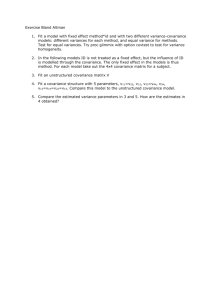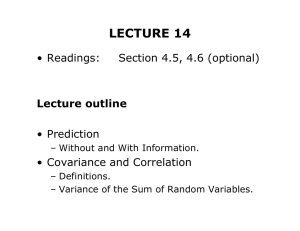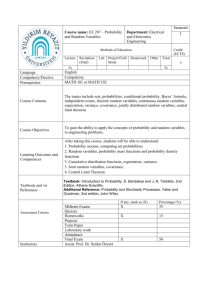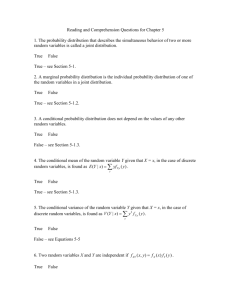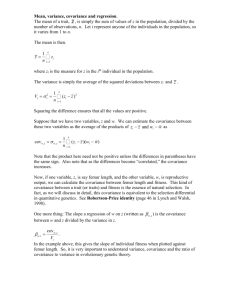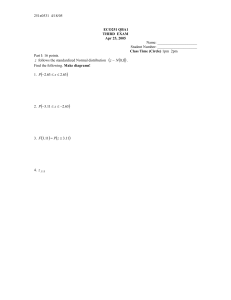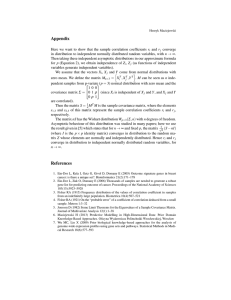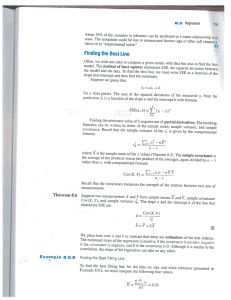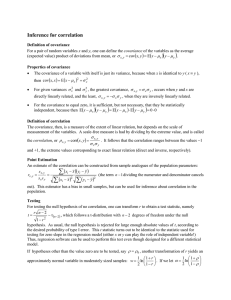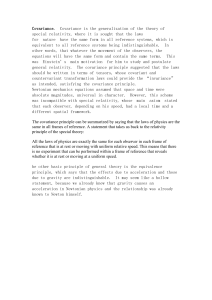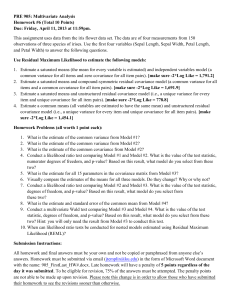Mean, Variance, and Standard Deviation
advertisement
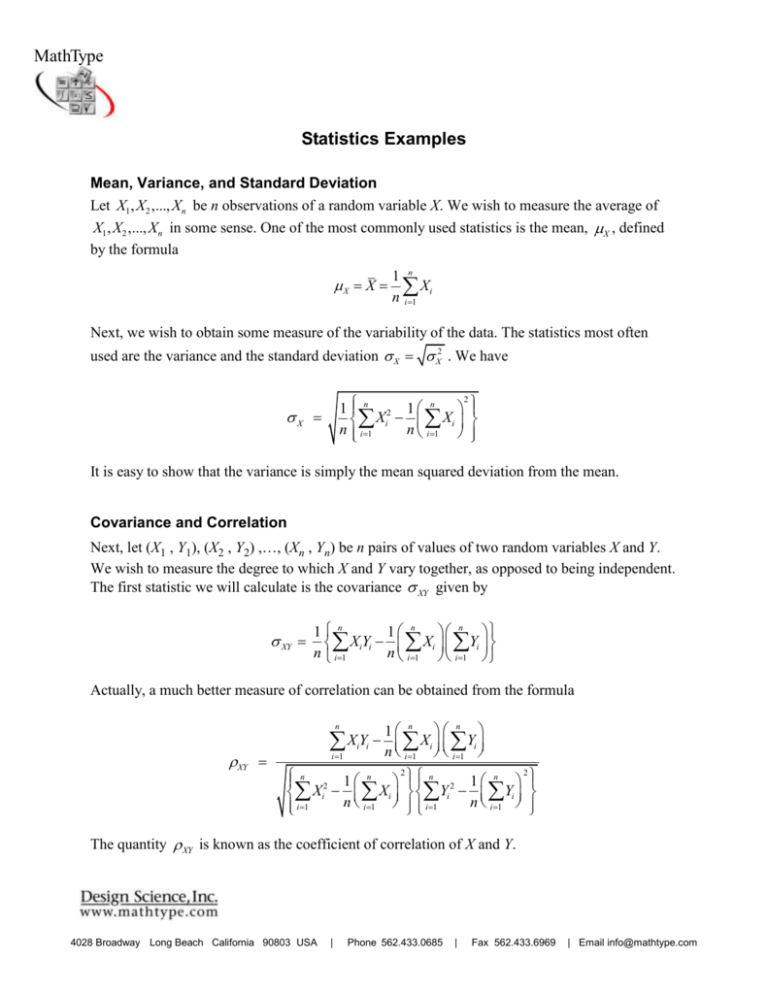
MathType Statistics Examples Mean, Variance, and Standard Deviation Let X1, X2 ,..., Xn be n observations of a random variable X. We wish to measure the average of X1, X2 ,..., Xn in some sense. One of the most commonly used statistics is the mean, X , defined by the formula X X 1 n Xi n i 1 Next, we wish to obtain some measure of the variability of the data. The statistics most often used are the variance and the standard deviation X X2 . We have 1 n 2 1 n Xi Xi n n i 1 i 1 X 2 It is easy to show that the variance is simply the mean squared deviation from the mean. Covariance and Correlation Next, let (X1 , Y1), (X2 , Y2) ,…, (Xn , Yn) be n pairs of values of two random variables X and Y. We wish to measure the degree to which X and Y vary together, as opposed to being independent. The first statistic we will calculate is the covariance XY given by XY 1 n 1 n n X Y X Yi i i i n i 1 n i 1 i 1 Actually, a much better measure of correlation can be obtained from the formula 1 n n X Y X Y i i n i 1 i i 1 i i 1 n XY n 2 1 n 2 n 2 1 n 2 Xi Xi Yi Yi n i 1 i 1 n i 1 i 1 The quantity XY is known as the coefficient of correlation of X and Y. 4028 Broadway Long Beach California 90803 USA | Phone 562.433.0685 | Fax 562.433.6969 | Email info@mathtype.com The Covariance Matrix Covariances and variances are sometimes arranged in a matrix known as a covariance matrix. In our case, the covariance matrix will be a 2 2 matrix: 2 XY C X 2 XY Y The eigenvalues of the covariance matrix are sometimes of interest. These are obtained in the usual way by solving the characteristic equation: p det I C X2 XY XY Y2 Statistics Examples page 2
